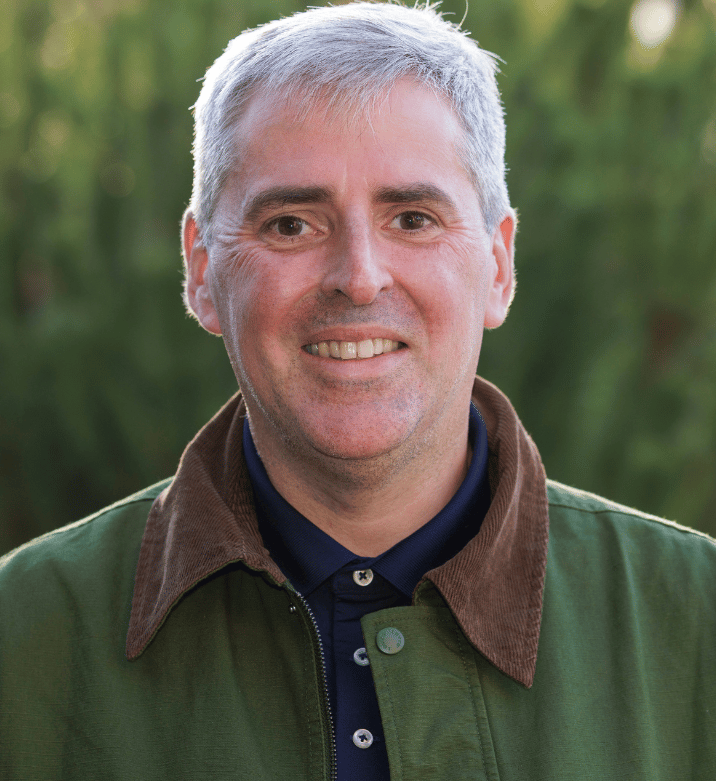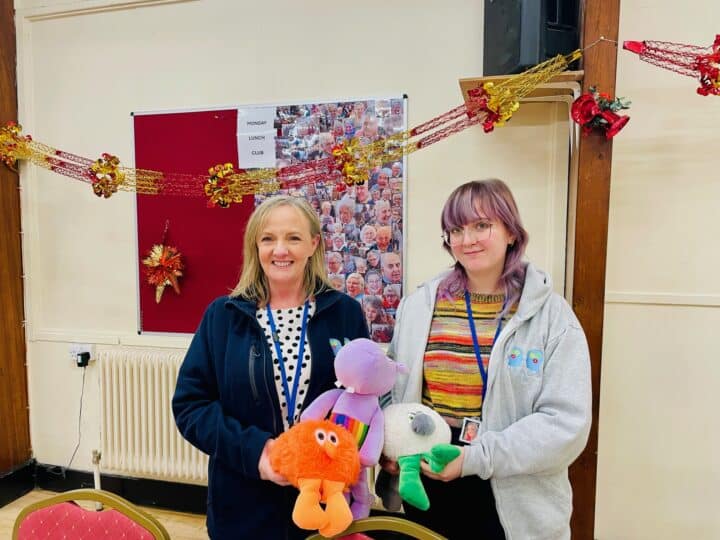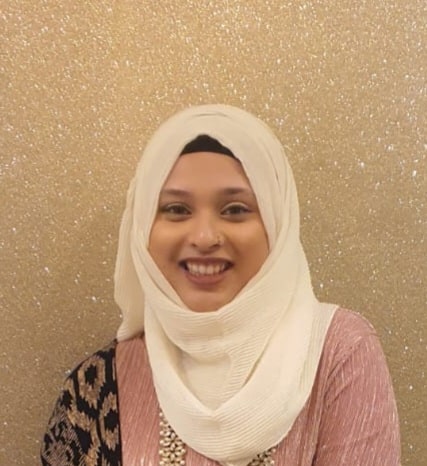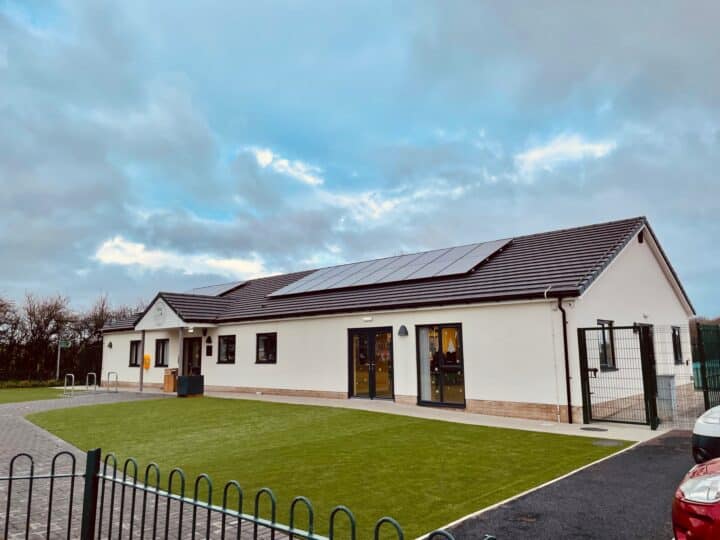-
About
About
Local Trust is a place-based funder supporting communities to achieve their ambitions.
Find out moreGo straight to…
< Back to main menu -
Big Local
Big Local
Big Local is an exciting opportunity for residents in 150 areas to create lasting change in their communities.
About the programme< Back to main menuSupport centre
Essential guidance, information and ideas for Big Local partnerships, to help you deliver change in your community.
Visit the support centre -
Other programmes
Other programmes
Find out how the principles of Big Local have inspired other programmes creating change in local communities.
< Back to main menuCommunity Leadership Academy
Supporting volunteers involved in Big Local projects to develop their skills and knowledge.
Find out moreCreative Civic Change
This new approach to funding enabled communities to use art and creativity to make positive local change.
Find out more
-
News and stories
News and stories
The latest news and stories from Big Local areas and beyond, exploring community power and resident-led change.
ExploreGo straight to…
< Back to main menuVoices of Big Local
Inspiring stories from the people making change happen in their communities.
Read more - Insights
- Policy

-
About
About
Local Trust is a place-based funder supporting communities to achieve their ambitions.
Find out moreGo straight to…
< Back to main menu -
Big Local
Big Local
Big Local is an exciting opportunity for residents in 150 areas to create lasting change in their communities.
About the programme< Back to main menuSupport centre
Essential guidance, information and ideas for Big Local partnerships, to help you deliver change in your community.
Visit the support centre -
Other programmes
Other programmes
Find out how the principles of Big Local have inspired other programmes creating change in local communities.
< Back to main menuCommunity Leadership Academy
Supporting volunteers involved in Big Local projects to develop their skills and knowledge.
Find out moreCreative Civic Change
This new approach to funding enabled communities to use art and creativity to make positive local change.
Find out more -
News and stories
News and stories
The latest news and stories from Big Local areas and beyond, exploring community power and resident-led change.
ExploreGo straight to…
< Back to main menuVoices of Big Local
Inspiring stories from the people making change happen in their communities.
Read more - Insights
- Policy

Changemakers: Building local bonds and community resilience
To celebrate ten years of Local Trust, our Changemakers series highlights the stories of some of the remarkable people delivering Big Local. Here Stephen Perez, coordinator of Arches Big Local, shares how bringing people together has created positive local changes.
Ten years ago, the National Lottery Community Fund embarked on a big, bold experiment, to put money directly into the hands of communities who had previously ‘missed out’ – leading to the creation of 150 Big Local partnerships. A decade later, in the face of austerity, a global pandemic, and a cost of living crisis, many of these partnerships act as an immediate lifeline to local residents, whilst also creating long-term change.
Stephen’s story
Stephen Perez has been the coordinator for Arches Big Local in Medway, Kent since 2016 and he has been involved in the Big Local partnership since it started. Born in nearby Dartford, Stephen, a 49-year-old father of three, has lived in the area for 15 years.
“I was born in a Big Local area,” he explains. “My wife is from Northfleet, which is a Big Local area. And I moved to a Big Local area.”
Stephen says that the biggest challenges he faces in his job are his time, his sanity and managing people’s expectations. It is a role that has seen him heavily involved in the Fit and Fed programme, which has fed and provided activities for hundreds of local children in the school holidays.
It has also seen him drive an urban tree planting project, as well as facilitate the Arches Chatham Neighbourhood forum in which, over the last four years, more than 2000 local people have taken part in consultations and conversations about developing a shared vision for the area they live in.
He has managed all of this alongside supporting a vibrant weekly schedule of events, including after-school clubs, ukulele and patchwork classes, singing groups, Facebook hangouts and Silver Sundays for older residents, to name but a few.
Q. Why did you get involved in Big Local?
Stephen: I didn’t really want to get involved in it. I’d worked up in the city most of my life, and for lots of sort of complex reasons, I became a stay-at-home dad. I was bored, if I’m being brutally honest, so I started doing community stuff to fill time – football coaching and lots of other things.
I’d spent a long period of my life travelling very early in the morning to work and coming home very late at night. I hadn’t really spent a lot of time where I lived.
… what Big Local isn’t is a firework display. It’s not something instantaneous … But given time and given the right structures and the right ingredients, you can make big changes.”
Q. What needs did you identify as existing within the area?
Stephen: The one thing I noticed was that a lot of people were very unhappy. There was a lot of poverty. I don’t come from a community background so I was thinking let’s just do some stuff that’s fun, that people can get involved with.
And that’s how it started. Before Big Local, I did a football project which was aimed at people with dependency issues and those in a younger age group who were at risk of being excluded from school.
Q. How would you describe your area to someone who’s never visited?
Stephen: Visually, it doesn’t look great but behind that there are lots of layers. It was reliant on one form of employment, the dockyards, and when that was gone, it created a massive void.
I’d describe the area as vibrant and diverse. There are lots of different people from lots of different places living together. It’s an area that’s improving and Big Local has had a large part to play in that.
But it’s also hard to paint it as something it’s not. It’s not particularly friendly at times. There’s never been anything that’s been led from the bottom or resident-led or community-led. It became very easy to be done to. You’re just sitting there waiting for the next thing to happen. That is the story of the area.
Q. How has the work of the Big Local helped to change that?
Stephen: It’s hard to describe because what Big Local isn’t is a firework display. It’s not something instantaneous. A lot of things take time and that’s what we’ve found. But given time and given the right structures and the right ingredients, you can make big changes.
We’ve done lots and lots of different things and collectively they add up to a larger mass. One of the things that we have done for a long time is talk to each other. We continue to talk to each other now and we have an open dialogue that’s centred around how things are fed into the partnership and how things are fed into [our] plan.
I’m proud of everything that we’ve done. I’m also proud of the things that we’re going to do. Just doing things, that is the thing to be most proud of.”
Big Local affords you that energy and that resilience to stay in the game. Somebody who’s passionate about their area and a cause and they’re doing it all for free can hit a massive wall called the council and bureaucracy. Ultimately a lot of people just slide down that wall never to be seen again. Big Local has given us the equipment to hold onto the wall. It’s enabled us to stay in the game and be resilient and consistent.
Q. Which of the initiatives do you look on with most pride?
Stephen: It’s difficult to pick out one thing. We’ve done a lot around the Fit and Fed programme, which we’ve run for about six years. That’s made a massive difference because it’s brought young people together and therefore brought their families together.
It’s enabled people to discover commonality, to build up bonds and relationships. The knock-on effect is that the children do better at school, they eat better, people are happier, Mum and Dad are able to keep a job. Those little, tiny things come from people feeling safer and happier. We’ve seen that massively.
A lot of people look at the area and think that diversity is its biggest problem. Actually, it’s its biggest strength. Projects like [Fit and Fed] show that people can come together regardless of look, creed or religion or what football team they support. They can come together and enjoy each other’s company and be involved in things that are positive.
I’m proud of everything that we’ve done. I’m also proud of the things that we’re going to do. Just doing things, that is the thing to be most proud of. It’s about trusting each other and trusting ourselves.
Q. Tell us about the urban tree planting project.
Stephen: We plant a lot of street trees, which is complex in an urban area. We bought a Cat scanner and a number of us have got City & Guilds in how to use it so we can look to see where we can sensibly put stuff. We’ve planted 70-plus street trees. We also planted trees in big, huge pots where we couldn’t plant them in the ground.
Ten years ago, we had a conversation with the council and they said we couldn’t plant trees because it was too complicated, too costly. Since then, we’ve planted trees with social housing landlords who own huge pieces of land.
In the last two years we’ve developed a relationship where the highways manager has dug us holes that we could plant trees in. Lots of people said they would get vandalised or destroyed, but I think we’ve lost one tree and nobody really knows what happened to that one.
It’s enabled people to discover commonality, to build up bonds and relationships. The knock-on effect is that the children do better at school, they eat better, people are happier, Mum and Dad are able to keep a job.”
Q. Do you ever stop and wonder why you do what you do?
Stephen: No I don’t. It’s a choice. I could stop tomorrow if I wanted to. I really could. I do it partly because nobody else was doing it but the real reason is because I saw people were so inherently unhappy.
I’ve got three children. My family has got to live here and we like living here. When we first spoke to people, one of the first things we asked them is what they wanted to do. Most of them said they wanted to leave. I don’t want my children to feel that they have to go. As I’ve become sort of more emotionally attached, I’ve adopted the area and everybody in it.
Q. When the Big Local funding comes to an end how do you think you will judge success?
Stephen: Good looks like now. Good looks like we’re still doing it. If we’re not still doing it, why did we bother in the first place? If when we get to the end, we’re still doing elements of what we are doing now, that will be success.
Interview by Dan Davies.
Explore more from Arches Big Local in our podcast A level playing field and Bond’s report on what makes a good locally-led funder.
Read more Changemakers stories from the people delivering Big Local on our Voices page.
Our new website launches January 2026 with 15 years of Big Local insights. Sign up to our newsletter to stay updated.
Our new website launches January 2026 with 15 years of Big Local insights. Sign up to our newsletter to stay updated.


